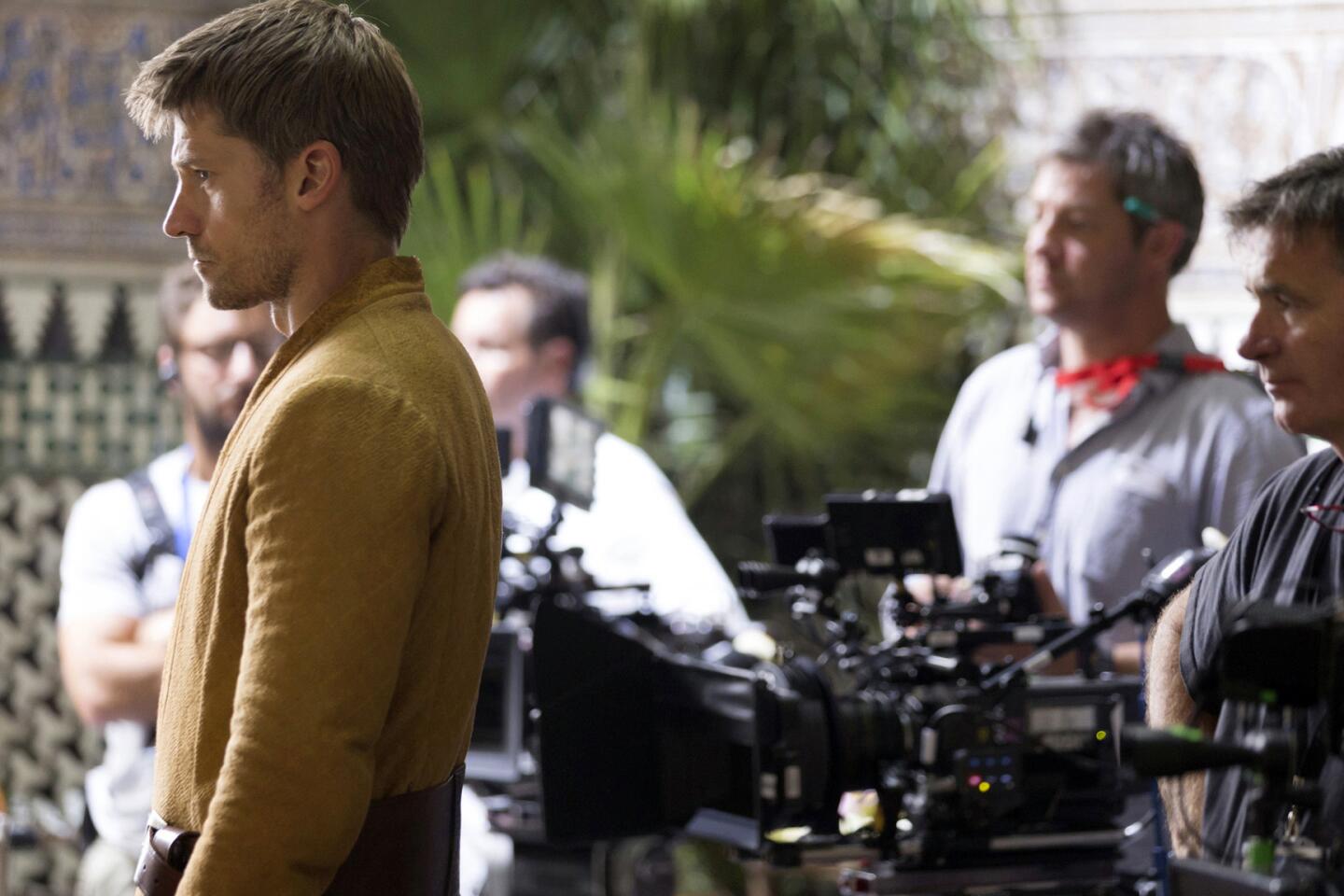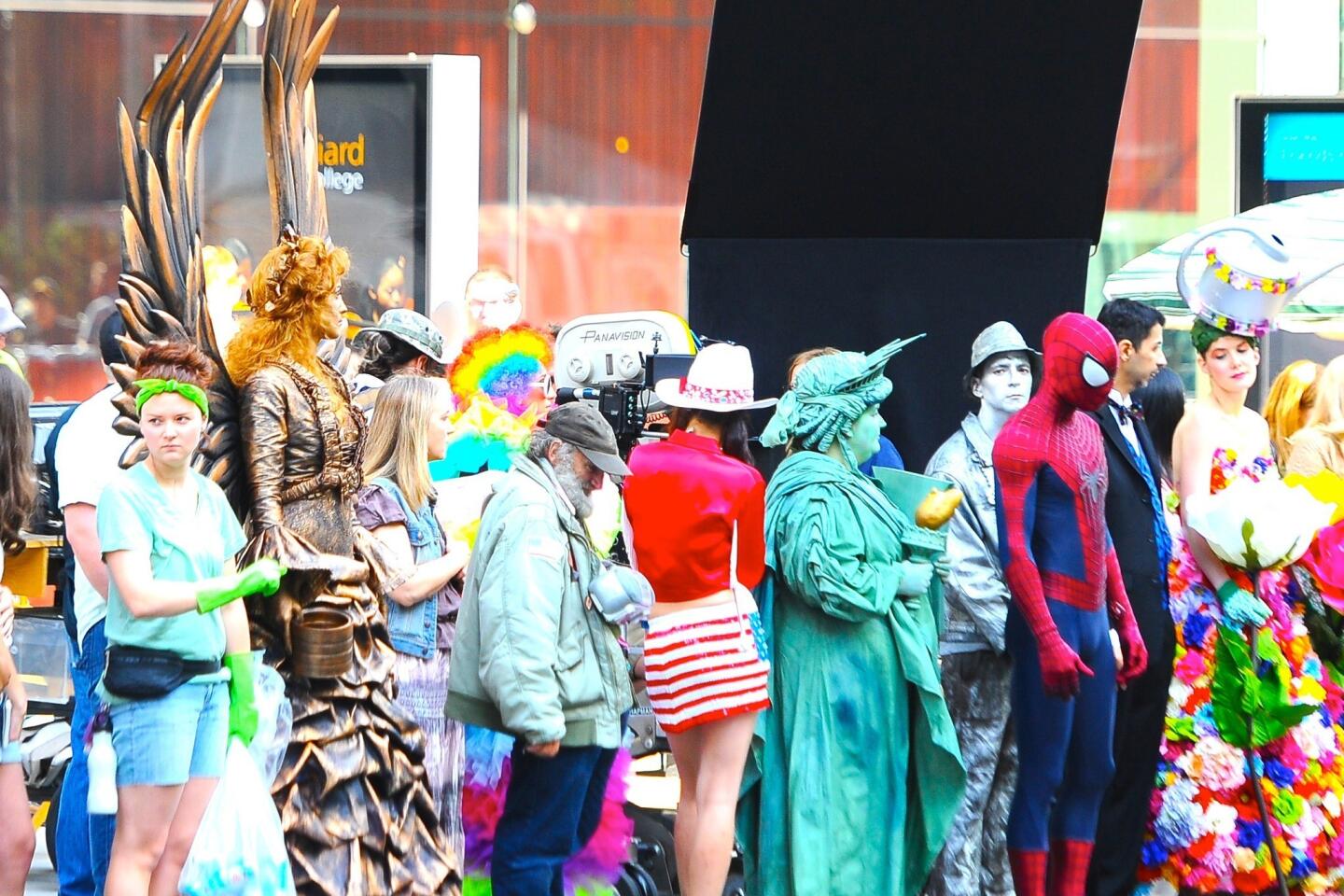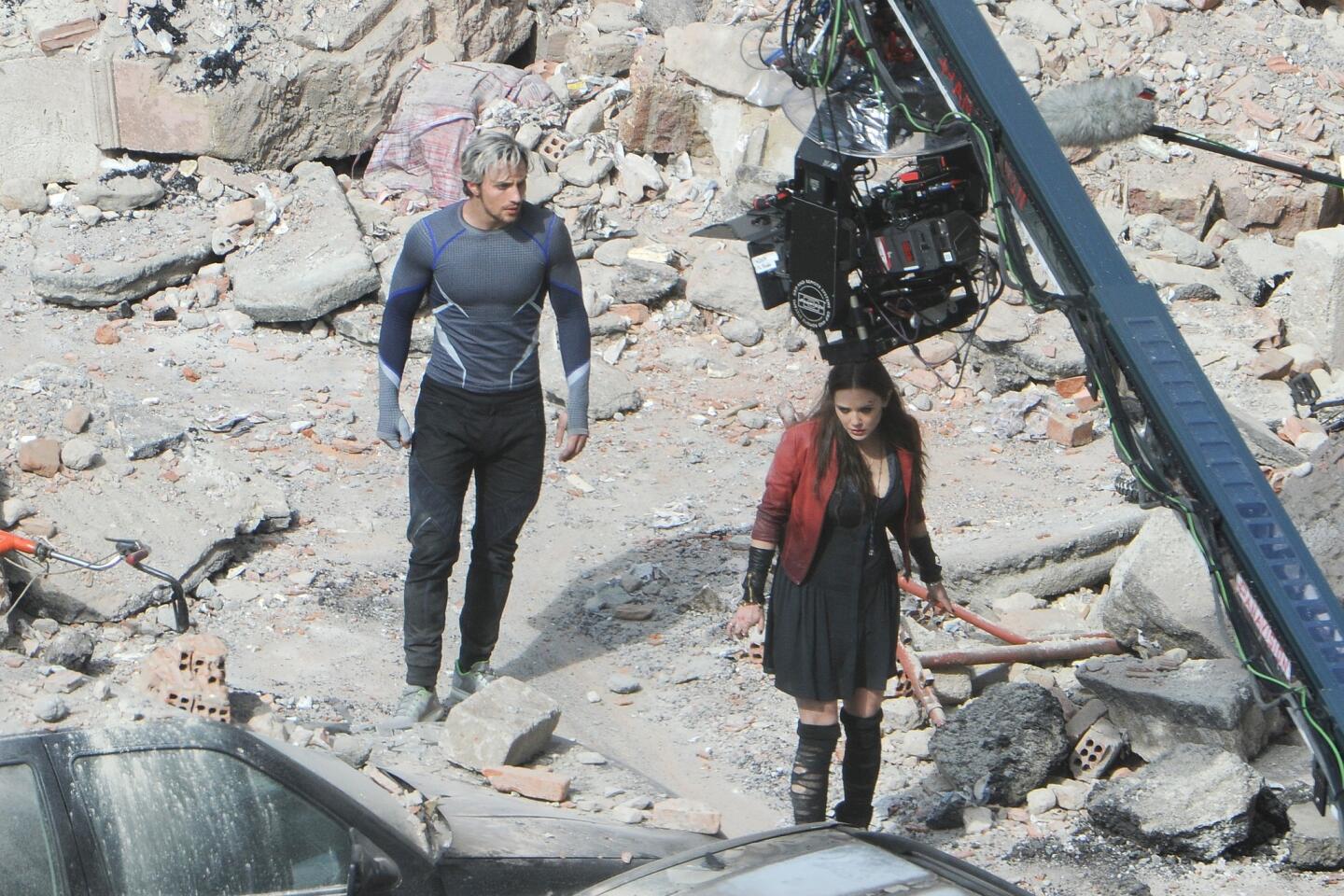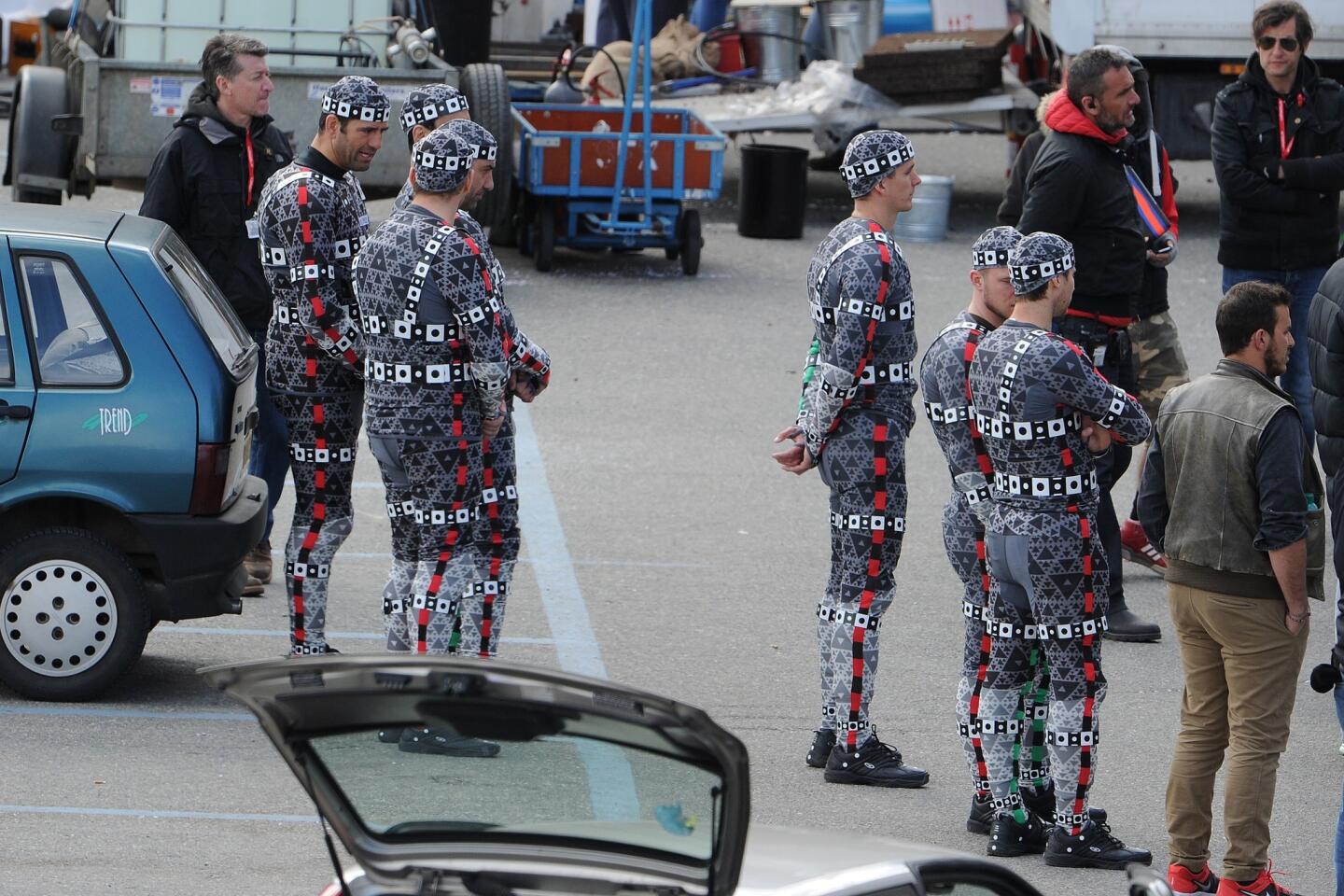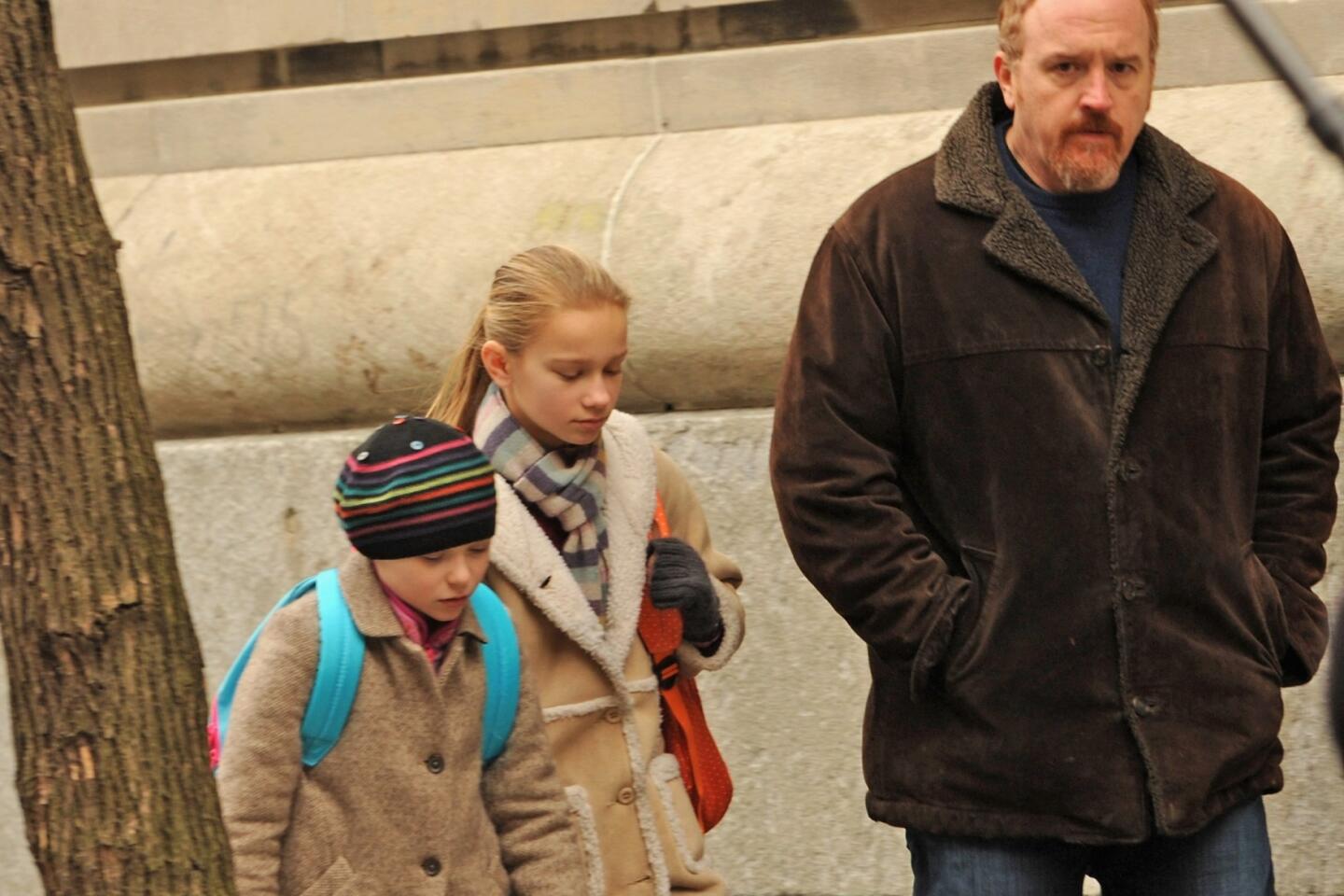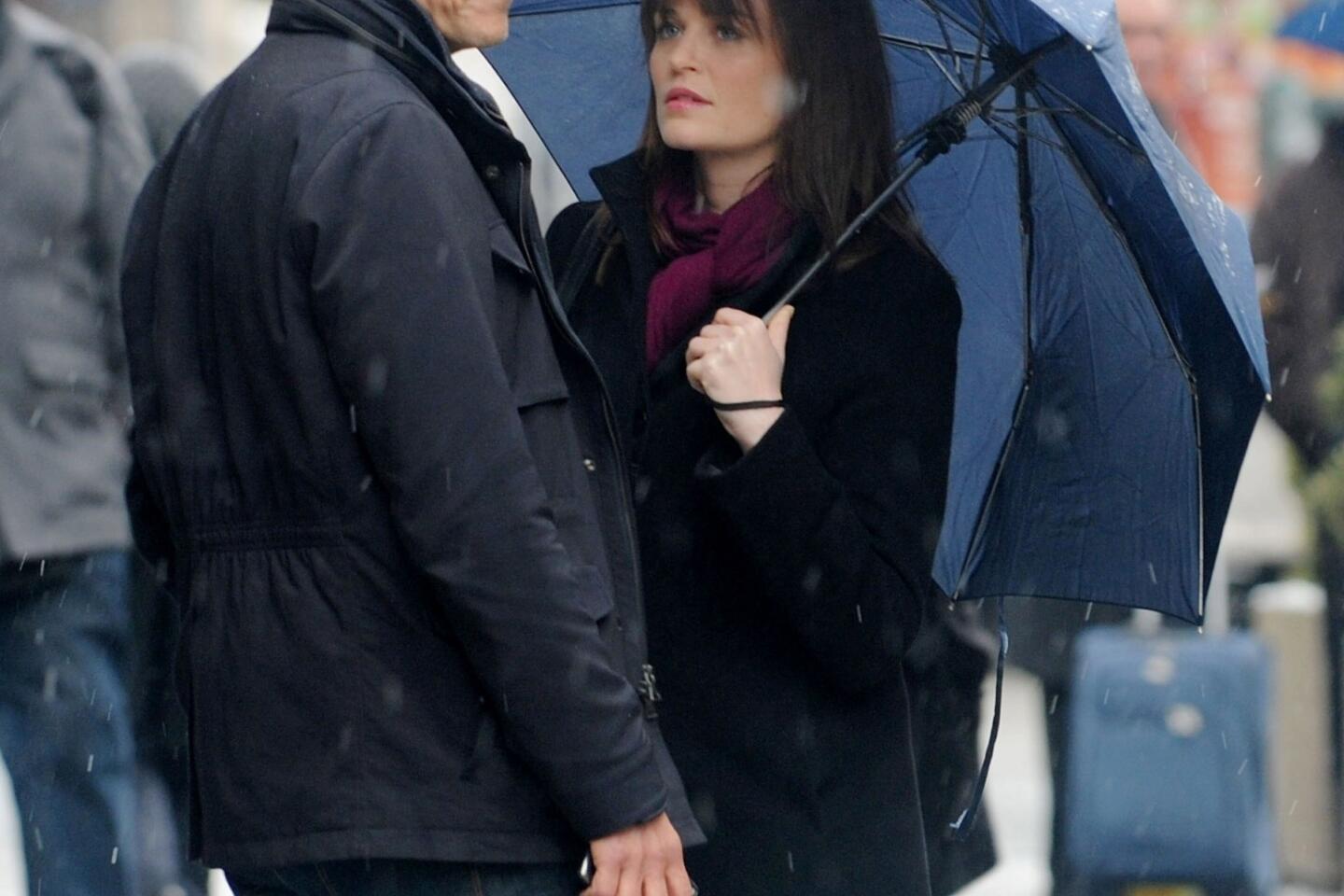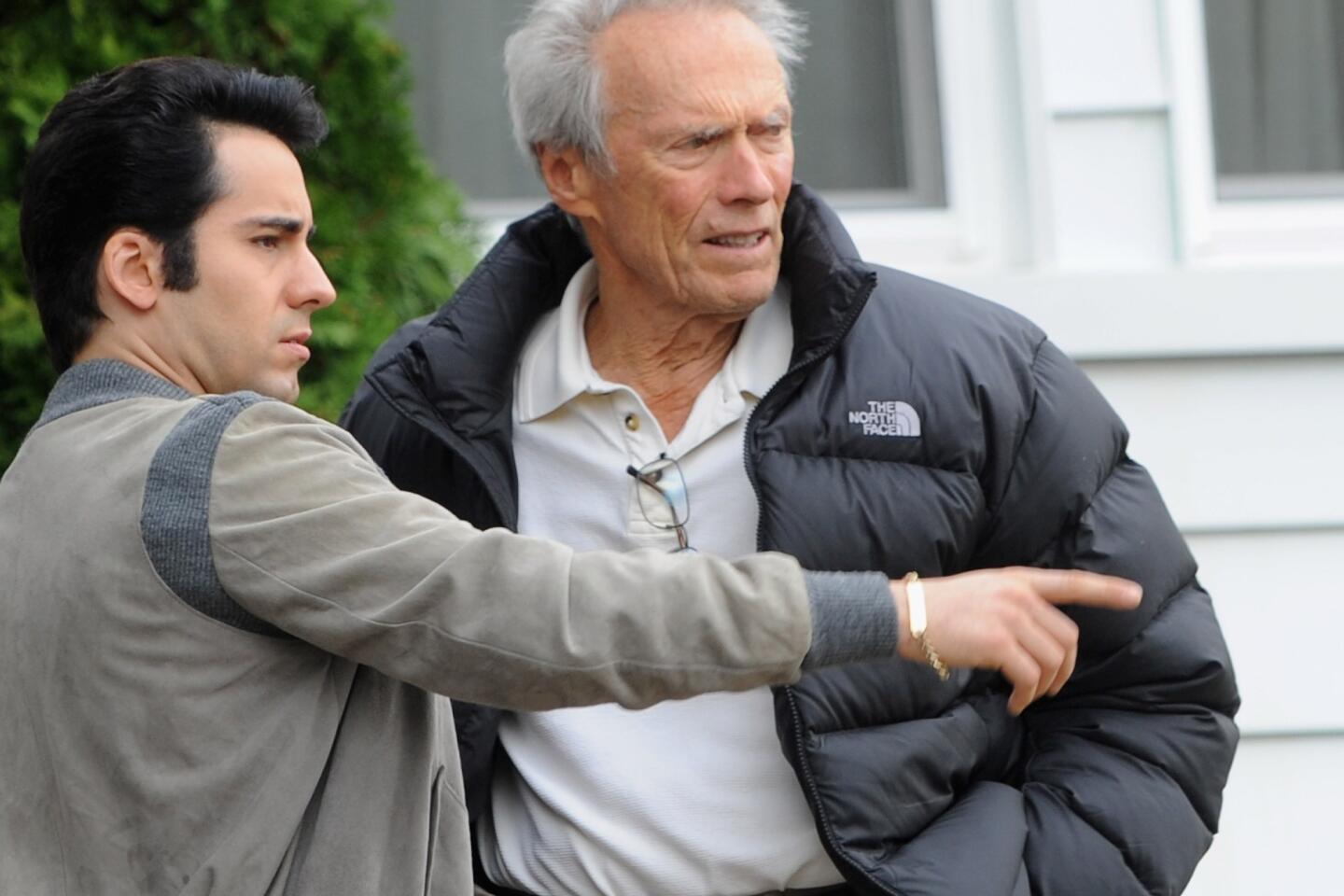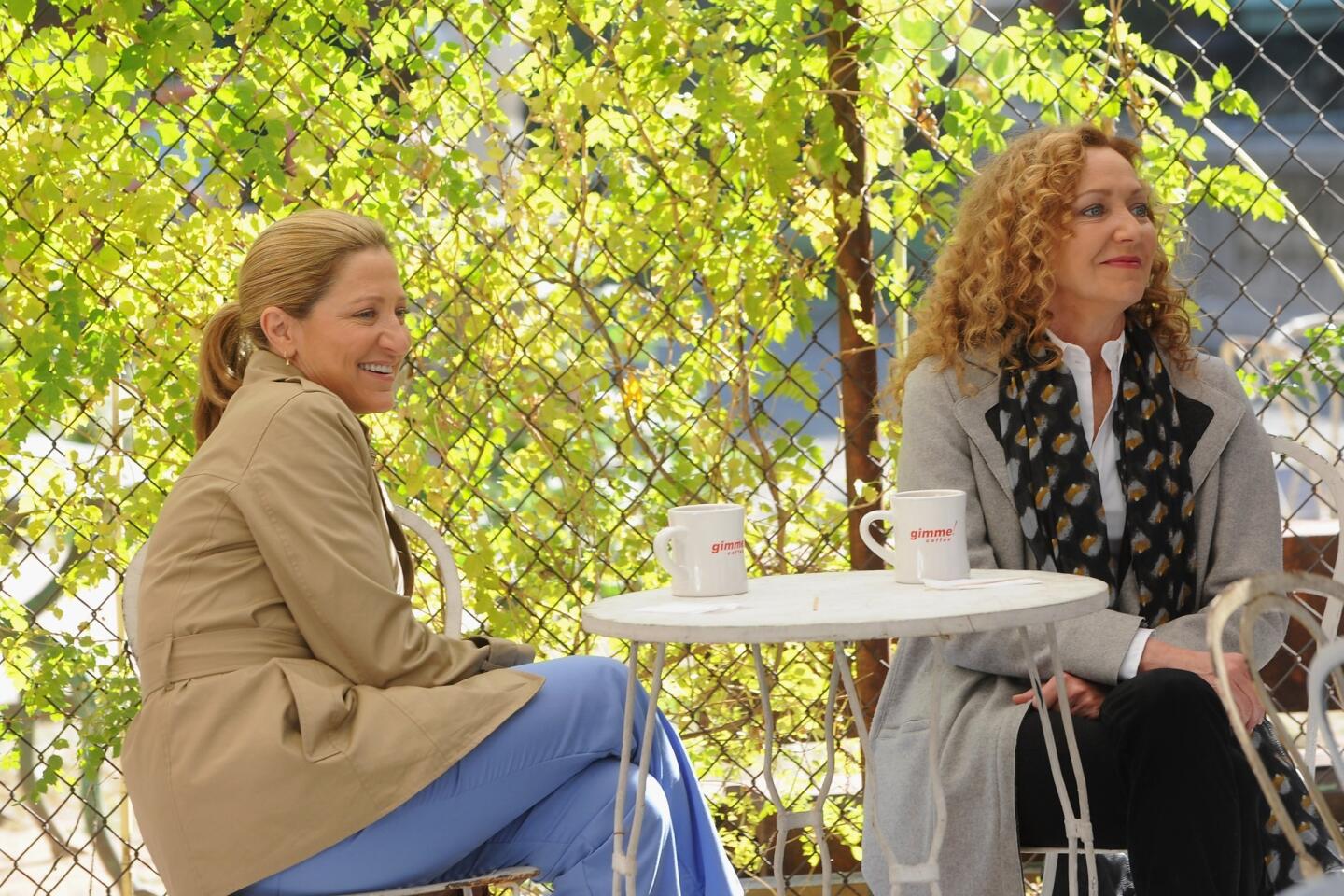Review: Transfixing ‘Fill the Void’ looks at love by arrangement
A mother and daughter anxiously scan the aisles of an Israeli supermarket. They’re not looking for fresh produce but rather a clandestine glimpse of a young man a matchmaker has proposed as a potential husband for the daughter. The mother’s eye is practiced as he comes into view — “You’re going to do a lot of laundry” — but the daughter is delighted. At least for now.
Thus begins “Fill the Void,” a transfixing, emotionally complex Israeli drama that won the Venice Film Festival’s lead actress award for Hadas Yaron. The film was nominated for 13 Ophirs, the Israeli Academy Awards, and won seven, including best picture and, for groundbreaking filmmaker Rama Burshtein, directing and screenplay honors.
Herself a member of the Haredi, the ultra-Orthodox community “Fill the Void” is set in, Burshtein has spent years making movies only for the women of her largely sexually segregated society. This story of the wrenching choice that soon faces that young woman in the supermarket is the director’s first film for the wider world, and it benefits greatly from the insider’s authenticity, psychological as well as physical, her status inevitably gives it.
Burshtein’s cinematic experience has more than honed her quietly effective and inherently dramatic filmmaking style, it’s deepened her gift for emotional honesty, for knowing the truth of a situation and how to convey it to an audience. In its site specificity and the intensity of its story about conflict inside a closed community, this film brings to mind the superb Iranian “A Separation” as much as anything else.
“Fill the Void’s” publicity material reveal that Burshtein is a Jane Austen fan, and like Austen she understands that the great stories are more often than not about family and passion, the very things that bring us together and tear us apart.
Also, uncannily echoing Austen’s world while being completely different, the Haredi live in an all-rules-all-the-time community where the demands of Jewish law and culture are so overpowering that every aspect of life is ritualized and going against the norms creates recrimination and scandal. Like Burshtein, this film’s community is based in Tel Aviv, not the more restrictive Jerusalem, but those parameters remain largely the same.
Though marriages are arranged in this world, “Fill the Void” is at pains to point out that these unions can end up being happy and loving. Also, the young woman in the arrangement is not forced to marry the person selected. But given that family, culture and community place powerful pressures on young people, the potential to make personal preference irrelevant is great. That’s the dramatic space where this film lives.
The first person 18-year-old Shira (Venice winner Yaron) tells of her pleasure at the match that’s been arranged for her is her beloved older sister Esther (Renana Raz). Esther is nine months pregnant and she and her husband, Yochay (Yiftach Klein), have what appears to be an idyllic marriage.
Almost at once, however, tragedy strikes. Esther’s pregnancy takes a dire turn, and though her child survives, Esther does not, which leads to all manner of complications. For one thing, there is more or less a community mandate that Yochay remarry as soon as possible. When a potential wife is found in Belgium, Rivka (a compelling Irit Sheleg), the mother of Esther and Shira, gets increasingly distraught at the thought of her first grandchild being taken so far away.
PHOTOS: Celebrities by The Times
Ignoring Shira’s palpable pleasure at her potential wedding to the young man glimpsed in the supermarket, Rivka pushes the idea that Yochay should be matched to Esther’s sister. “Isn’t it better than marrying a stranger?” she asks, not at all rhetorically.
Shira is at first shocked by the notion, as is Yochay. Love is everything to her, and the notion of starting a life with a person who is her elder and not her peer feels wrong. But the relentless pressure from Rivka and the culture is just that, relentless, and Yochay, as chance would have it, turns out to be a handsome and compelling figure in his own right.
Yaron does such an exceptional job portraying Shira in all her various moods and situations that the woman she is at “Fill the Void’s” close is almost unrecognizable from the person we saw in the supermarket.
When you add in a conclusion that may be more ambivalent than its creators intended, you’ve got all the evidence you need that the Israeli film renaissance, which began more than a decade ago with another matrimony-based drama, “Late Marriage,” is nowhere near its end.
--------------------------------
‘Fill the Void’
MPAA rating: PG for mild thematic elements and brief smoking
Running time: 1 hour, 30 minutes
Playing: At Laemmle’s Royal, West Los Angeles
More to Read
Only good movies
Get the Indie Focus newsletter, Mark Olsen's weekly guide to the world of cinema.
You may occasionally receive promotional content from the Los Angeles Times.




